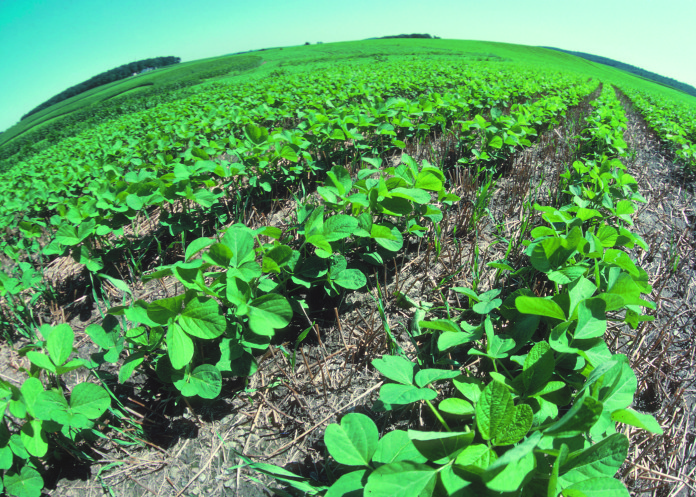By: Megan Nichols
The non-GMO movement and protests against Monsanto garner most of the media’s attention in the agricultural news, but there’s much more happening. Many of the nation’s farmers are quietly switching to sustainable methods, and the cumulative impact on the environment is positive. It’s not only small farmers getting involved: Many Midwestern farmers with vast tracts of traditional row-crop land are also changing, which means sustainability is trickling up the chain to big brands like Kellogg’s and Unilever.
Common Environmental Problems With Big Ag
Corporate agriculture has much to answer for, and many of their practices caused severe damage to ecosystems across the country. For example, the use of chemical fertilizers to increase crop yields has harmed wildlife, and run-off is responsible for the dead zone in the Gulf of Mexico, where no aquatic species can survive.
Pesticides are similarly harmful, and they’re especially dangerous for bees and other pollinators. Reliance on chemical techniques for improving yields has made a royal mess of the land, but sustainable methods promise to help heal the wounds while maintaining a robust food supply for the country.
Preventing Erosion and Protecting the Chesapeake
One major cause for concern with corporate agriculture is its tendency toward monoculture; that is, growing only one single crop in a large area. While monoculture is well known for depleting the soil of nutrients and allowing certain pests to thrive, another side effect is it leaves barren soil for periods of time between growing seasons. After harvesting an entire field at once, the empty land left behind is far more susceptible to erosion by wind or water.
Such erosion is particularly harmful to bodies of water like the Chesapeake Bay. Farmers on the Delmarva Peninsula are working hard to plant more acres of cover crops to reduce erosion. Planting cover crops, like winter rye and clover, on a plot of land after harvesting the main crop is important. This helps prevent erosion, which in turn reduces chemical run-off and contamination of the bay. Composting vegetal waste instead of throwing it away also allows for future soil enhancement. However, this is only one example of a local sustainable farming effort that’s making a significant difference.
Sustainability Takes on Many Forms
There are many ways that agricultural businesses embrace sustainability. Large companies have the leverage to affect change by creating a market for organic products and rewarding farmers for using sustainable methods. They can also be great spokespeople to laud the importance of sustainable agricultural.
Stoneyfield Farms, for example, connects consumers to the farms where their yogurt ingredients are sourced to promote a keen interest in sound environmental practices and local farming.
Individual farmers also play a role in sustainability. In addition to amending their practices to include cover crops and less chemical fertilizer, they can also participate in carbon markets to offset their fuel usage. Small farmers can also keep a close eye on their supplies and practice the old “reduce, reuse, recycle” protocol in much of their work.
Many people don’t realize how current agriculture practices depend on plastic. The term “plasticulture” exists because farmers rely on plastics for many reasons. This includes soil fumigation film, irrigation drip-tape, and bulk seed supply. However, some farmers are taking action to reduce their dependence. Some farmers make the eco-friendly choice to recycle their bulk bags and plastic films. With sustainable agriculture gaining momentum, it’s only a matter of time before more recycling options are available.
The Bottom Line: Sustainability Is Good for Business
Farmers large and small are making great strides toward increased sustainability in agriculture, and the results are truly working. There’s little doubt that people are becoming more concerned about the plight of the planet. As they continue to do so, they’ll seek sustainable products, and farmers will practice methods that do right by the land and bring in enough money to allow them to sustain their families — and that’s a win-win for all inhabitants of planet earth.
About the Author:
 Megan Nichols is the editor of Schooled by Science. She enjoys writing about the latest innovations in technology and science.
Megan Nichols is the editor of Schooled by Science. She enjoys writing about the latest innovations in technology and science.










